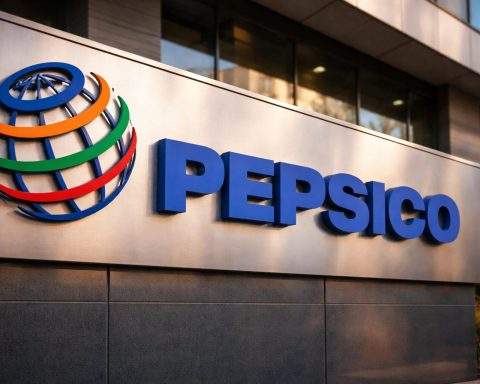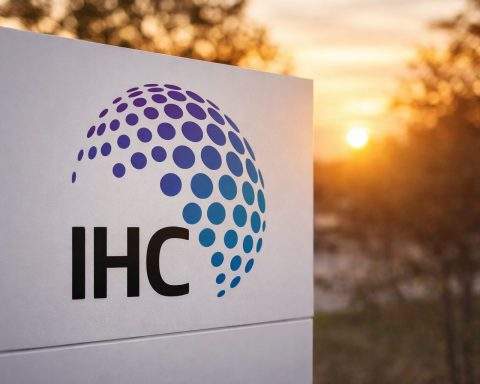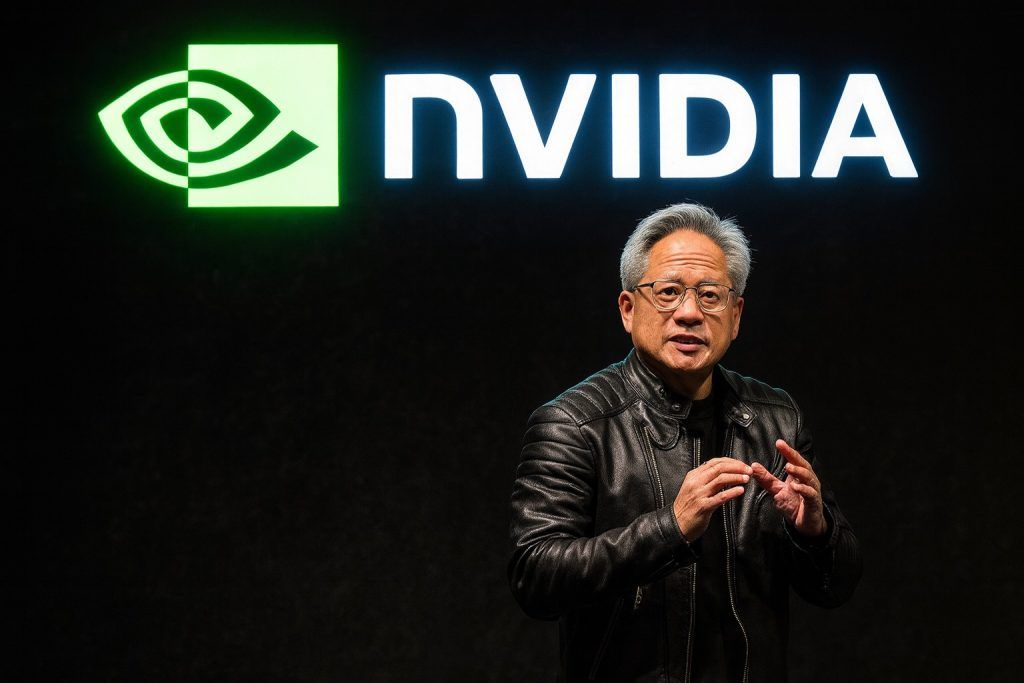Alibaba Group Holding Ltd (NYSE: BABA) is trading slightly lower today after a blockbuster year, as investors weigh a powerful AI push, fresh legal headlines and next week’s earnings report.
Key Takeaways for 19 November 2025
- Price today: BABA is trading around $159 per share, down about 0.5% on the day, after an intraday range roughly between $158 and $161. 1
- 2025 rally intact: Despite today’s dip, Alibaba shares remain up roughly 85–90% year-to-date, near the upper half of their $80–$193 52‑week range. 2
- Big catalyst next week: Alibaba will report September‑quarter 2025 results on 25 November, with Wall Street expecting modest revenue growth but sharply lower year‑on‑year profit. 3
- AI front and center: The new Qwen consumer AI app and a B2B AI subscription plus JPMorgan blockchain payments partnership are becoming core to the investment story. 4
- Regulatory overhang: A White House memo alleging Alibaba tech support for China’s military has triggered multiple U.S. law‑firm investigations and a pullback in the stock. Alibaba strongly denies the claims. 5
- Mixed yet bullish sentiment: Analysts retain a “Strong Buy” consensus with an average 12‑month target near $197 (roughly 20–25% upside), but some AI‑driven research has turned more cautious on free cash flow and quick‑commerce losses. 6
Let’s dive into what’s moving Alibaba stock today, 19 November 2025, and how it fits into the bigger picture.
BABA Stock Price Today: Small Pullback After a Huge Run
As of late U.S. trading on 19 November 2025, Alibaba’s American Depositary Shares (ADS) change hands around $158–$159, down roughly 0.5% on the session. 1
Key price context:
- Intraday range: About $158.0–$161.0. 1
- 52‑week range: ~$80–$193, putting today’s price closer to the top than the bottom. 1
- Valuation: BABA trades on a P/E near the high teens and a price‑to‑sales around 2.5x, cheaper than many global mega‑cap tech peers despite faster AI‑related growth. 1
After a year in which the stock has nearly doubled, several recent headlines – especially those around geopolitics and investigations – have injected fresh volatility, even as the long‑term AI and e‑commerce story remains intact.
All the Major Alibaba News Hitting on 19 November 2025
Here’s what’s new today and directly influencing sentiment around BABA:
- TipRanks preview: Strong Buy, but AI analyst turns cautious
- A TipRanks analysis ahead of Alibaba’s upcoming Q2 FY26 (September‑quarter) earnings notes the stock is up over 90% year‑to‑date, powered by strong financials, improving e‑commerce profitability and surging cloud/AI demand. 6
- Consensus expects Q2 EPS around $0.85, down sharply from $2.10 a year ago, on ~$34.3 billion in revenue – roughly 4% year‑on‑year growth. 6
- TipRanks shows 19 Buy vs 2 Hold ratings and an average target of about $198, roughly 24% upside from current levels. 6
- However, TipRanks’ own AI analyst model downgraded BABA from “Buy” to “Neutral” and cut its target to $176, citing weak free cash flow and losses in the quick‑commerce business as reasons for caution. 6
- TradingView: delivery war and Cainiao–UAE logistics MoUs
- A TradingView “Key facts” note highlights that Alibaba will report fiscal Q2 results next Tuesday, with analysts forecasting net profit of about 2.39 billion yuan, versus 43.9 billion yuan in the prior‑year quarter – a huge drop due largely to one‑off gains and higher spending last year. 7
- The same piece describes Alibaba as a top beneficiary of China’s fierce delivery price war, as higher basket sizes and gradually lower unit costs could improve per‑order profitability. 7
- It also flags two new memorandums of understanding between Cainiao (Alibaba’s logistics arm) and UAE‑based Al Khayyat Investments, aimed at deepening cooperation in logistics, technology and life sciences between China and the Gulf region. 7
- Bamboo Works: Ele.me brand retired in favor of Taobao Instant Commerce
- A detailed Bamboo Works piece out today reveals that Alibaba is retiring its long‑time Ele.me food‑delivery brand, re‑painting its couriers in Taobao Instant Commerce livery and shifting the focus from takeaway meals to broader “instant commerce” – delivering everything from groceries to household essentials within an hour. 8
- The authors argue the move aligns Alibaba with rivals JD.com and Meituan, which already operate under unified delivery brands, and could help the company compete more effectively after years of ceding ground to Meituan. 8
- They also caution that catching up will require significant capital, as Ele.me has often underperformed since Alibaba’s 2018 acquisition. 8
- CMC Markets OPTO: AI ambitions vs. geopolitical risk
- An OPTO (CMC Markets) analysis on China’s tech titans reviews Baidu and PDD’s latest earnings and zooms in on Alibaba’s next report. It notes: CMC Markets
- Alibaba has aggressively pivoted to AI, launching a consumer‑facing Qwen chatbot app on 18 November to compete with services like ChatGPT and Grok.
- A White House memo reported by the Financial Times alleges Alibaba is providing data and technology to support Chinese military “operations” against U.S. targets, raising concerns about potential U.S. sanctions or even delisting from American exchanges.
- Cathie Wood’s ARK Invest has bought more BABA shares in November, suggesting some high‑profile investors see the pullback as an opportunity rather than a red flag.
- An OPTO (CMC Markets) analysis on China’s tech titans reviews Baidu and PDD’s latest earnings and zooms in on Alibaba’s next report. It notes: CMC Markets
- Bloomberg Opinion: “America Can’t Win by Targeting Alibaba”
- In a column published today, Bloomberg’s Catherine Thorbecke argues that this was supposed to be a celebratory week for Alibaba after the revamped Qwen app launch, which allows users to generate research reports and slide decks in seconds and is initially free to use. 9
- Instead, the White House memo has pulled the company back into the U.S.–China tech crossfire, even as Alibaba’s consumer AI tools potentially threaten Western incumbents by offering powerful functionality at zero cost – at least for now. 9
- MarketBeat: Primecap adds, Raiffeisen trims
- A fresh MarketBeat filing summary shows Primecap Management Co. CA has increased its stake in Alibaba by 0.7% in Q2, now holding roughly 20.76 million shares worth about $2.35 billion, making BABA one of Primecap’s largest positions and representing close to 0.9% of Alibaba’s outstanding shares. 10
- A separate MarketBeat alert notes Raiffeisen Bank International cut its holding by about 25.7% in the same period, selling 4,480 shares and ending the quarter with around 12,943 shares valued at roughly $1.5 million. 11
Taken together, today’s news paints a picture of a company doubling down on AI, logistics and international partnerships, while simultaneously facing heightened political and legal scrutiny – all just days before earnings.
Earnings Countdown: What to Expect on 25 November
Alibaba will report its September‑quarter 2025 results (its fiscal Q2 2026) on 25 November. 3
Street expectations
- EPS: Around $0.85 versus $2.10 in the same quarter last year – a steep decline due in part to tough comparisons and heavier spending on growth initiatives. 6
- Revenue: Roughly $34.3 billion, implying a low‑single‑digit to mid‑single‑digit percentage increase year over year. 6
- Net profit (in RMB terms): TradingView cites a consensus of about 2.4 billion yuan, far below the roughly 43.9 billion yuan reported a year ago when Alibaba booked sizable one‑off gains. 7
In its June‑quarter (Q1 FY26) report, Alibaba delivered 247.7 billion yuan in revenue (about $34.6 billion) with cloud sales up 26% year‑on‑year to 33.4 billion yuan, underscoring how strongly AI‑related demand is feeding into its infrastructure business. 6
What the market will watch most next week:
- Cloud & AI growth: Can Alibaba maintain 20%+ growth in cloud / AI revenue as competition intensifies and Chinese cloud budgets remain under pressure? 12
- Quick‑commerce losses: Goldman Sachs and others have warned that the instant‑delivery and local‑services business is still loss‑making, even as Alibaba leans into the delivery “arms race” with JD and Meituan. 13
- Consumer sentiment: Singles Day and macro data suggest Chinese consumption remains fragile – more on this below. 14
- Any update on political risk: Management commentary on the U.S. memo and securities investigations will be scrutinized, even if only to reiterate prior denials. 5
Qwen: Alibaba’s Bid to Own the AI “Everything App”
A central theme in almost every piece of recent coverage is Qwen, Alibaba’s fast‑evolving AI brand.
Consumer Qwen app
- The Qwen super‑app – launched in China this week and previously known as Tongyi – bundles powerful generative AI tools (long‑form research, document drafting, slide generation, coding help and more) into a single interface. 15
- It is currently free for consumers, a strategy Bloomberg and other commentators say could threaten paid rivals like ChatGPT, at least in markets where Alibaba can operate. 9
- According to the South China Morning Post, Qwen quickly climbed into the top five free apps on Apple’s store in both Hong Kong and mainland China during its beta phase, and is being pitched as an “everything app” that can unify shopping, payments, navigation and entertainment on top of AI. 4
B2B AI subscription and JPMorgan tokenization
On the enterprise side, Alibaba recently unveiled “AI Mode” on Alibaba.com:
- A $20/month (or $99/year) AI subscription helps B2B buyers discover suppliers, compare pricing, organize logistics and handle compliance using a multimodal engine called Accio. 16
- Alibaba is partnering with JPMorgan to build a tokenization‑based cross‑border payment system, aiming to move money more directly between buyers and sellers rather than routing through multiple correspondent banks – essentially a bank‑backed alternative to stablecoins for trade finance. 16
Investor reaction
- A CoinCentral analysis notes that as Alibaba announced its Qwen rebrand and AI roadmap, ARK Invest bought about 157,700 BABA shares worth ~$26 million on 11 November, using the post‑headline dip to increase exposure. 17
- ARK’s move has been widely interpreted as a vote of confidence in Alibaba’s AI strategy, even as geopolitical risk rises.
In short, Qwen is increasingly the face of Alibaba’s next growth phase – both for consumers and businesses – and a key reason many analysts argue the stock remains undervalued despite its rally. 2
Delivery Wars, Ele.me’s Retirement and the Local Services Push
Alibaba’s local services and delivery operations are also making headlines today via the Ele.me rebrand.
- Ele.me, long one of China’s best‑known food‑delivery brands, is being folded into Taobao Instant Commerce. Couriers are swapping Ele.me’s blue for Taobao orange, signaling that the service will no longer focus purely on restaurant delivery but on one‑hour delivery of almost anything. 8
- Bamboo Works notes that Alibaba has trailed Meituan in on‑demand delivery for years and that management appears to be consolidating its logistics muscles under the stronger Taobao brand to regain lost share. 8
- At the same time, TradingView’s note stresses that analysts see Alibaba as a major beneficiary of China’s delivery price war, expecting profits per order to improve over time as subsidies normalize and operating efficiency rises. 7
The upshot: investors should expect higher near‑term spending in local services as Alibaba attempts to scale Taobao Instant Commerce, but potentially better unit economics down the road if it can close the gap with Meituan and fend off an aggressive JD.com.
White House Memo, Law‑Firm Investigations and Delisting Fears
The biggest overhang on Alibaba shares in the past week has been political, not operational.
The allegations
- On 14 November, the Financial Times reported on a White House memo alleging that Alibaba has provided China’s People’s Liberation Army (PLA) with technology and data that could support operations against U.S. targets, including access to customer data such as IP addresses, Wi‑Fi details and payment records. 5
- The memo, dated 1 November, was described as based on declassified intelligence but did not specify exact systems or operations. U.S. officials declined to comment publicly. 18
Alibaba’s response and legal fallout
- Alibaba has strongly denied the allegations, calling them “completely false” and suggesting they are politically motivated in the context of U.S.–China trade negotiations. 15
- Following the report, Alibaba’s shares fell about 4%, dropping roughly $6 to close near $154 on 14 November. 5
- At least three U.S. plaintiffs’ firms – including Frank R. Cruz, Howard G. Smith and Portnoy Law – have announced securities‑fraud investigations into Alibaba, arguing that investors may have been misled regarding geopolitical risks and the company’s dealings with Chinese authorities. 19
So far, no new U.S. sanctions or listing actions have been announced, but commentary from OPTO and others notes that Washington could use the memo as justification for future restrictions, adding another layer of risk on top of China’s own regulatory environment. 20
For investors, the takeaway is clear: geopolitical and legal risk is now firmly back on the table, and may justify some valuation discount even if the allegations never translate into concrete policy.
Singles Day, Chinese Consumption and Macro Cross‑Currents
Alibaba’s core e‑commerce engine is still tied to the health of the Chinese consumer – and the data around Singles Day 2025 is sending mixed signals.
- According to the South China Morning Post, Alibaba’s Taobao and Tmall platforms hit record Singles Day sales, with more than 34,000 brands doubling sales versus last year, and thousands posting sales growth of 300–500%+ thanks to heavy use of AI‑driven promotions and personalized recommendations. 14
- However, a StockTwits report citing Syntun data notes that overall e‑commerce sales during Singles Day across platforms rose 14% to around 1.7 trillion yuan, while China’s official retail sales grew just 3% year‑on‑year during the period, down from 4.5% a year earlier. 21
- The same piece highlights that BABA shares fell across four consecutive sessions around the festival, even as JD.com also struggled, underscoring persistent worries about weak consumer sentiment, property‑sector stress and labor market softness in China. 21
The macro picture is therefore two‑speed:
- Platform‑level performance (GMV, engagement, AI marketing) looks strong.
- Economy‑wide demand remains fragile, keeping investors cautious about how much of that GMV converts into sustainable profits.
Who’s Buying and Selling Alibaba Stock?
Today’s filings and recent fund‑flow news show big investors on both sides, but with a tilt toward accumulation by high‑conviction growth managers.
Recent buyers:
- Primecap Management Co. CA – now holds about $2.35 billion of BABA, having gently increased its stake in Q2 2025. 10
- ARK Invest (Cathie Wood) – bought 157,731 shares (~$26m) on 11 November, spread across three ETFs focused on innovation and fintech. 17
- Coatue Management – doubled its position to about 2 million BABA ADSs as of 30 September, according to Reuters/SEC filings. 22
Recent sellers / profit‑takers:
- Raiffeisen Bank International – trimmed roughly a quarter of its position in Q2. 11
- Some other global funds have taken profits after the stock’s big run, even as they remain net long.
Net‑net, the flow data shows no broad institutional exodus; on the contrary, several sophisticated investors are adding into weakness, especially those explicitly betting on AI‑driven growth in Chinese tech.
Analyst and Valuation Picture: Still a “Strong Buy,” But With Caveats
Most major research platforms remain constructive on BABA:
- TipRanks: 19 Buy / 2 Hold ratings, Strong Buy consensus, average target $198.21 (~24% upside). 6
- Investing.com analyst panel: 38 Buy / 3 Hold / 1 Sell, with an average 12‑month target of about $196.94 and an estimated upside near 23–24%. 1
- Simply Wall St: estimates BABA is ~40% undervalued based on discounted cash‑flow models, even after an ~86% year‑to‑date gain, but warns that the recent rally has already priced in much near‑term good news. 2
At the same time:
- TipRanks’ AI analyst has downgraded its stance to Neutral, flagging weak free cash flow, ongoing losses in quick commerce, and competitive pressure in core e‑commerce as reasons to be more selective. 6
- Technical indicators on Investing.com show a short‑term “Sell” signal on daily charts, even as the monthly time frame remains a “Strong Buy,” reflecting near‑term consolidation after a big move higher. 1
In practical terms:
The market is treating BABA as a high‑beta, AI‑levered China recovery play – attractive on valuation and long‑term fundamentals, but sensitive to every macro and political headline.
What Today Means for BABA Investors
For investors looking at Alibaba on 19 November 2025, here’s the distilled picture:
Positives
- Strong 2025 rebound driven by AI, cloud and improving e‑commerce profitability. 6
- Qwen AI ecosystem – fast‑growing consumer app plus B2B AI subscriptions, positioned to turn Alibaba’s vast data and commerce network into a differentiated AI platform. 4
- Cloud momentum – Alibaba Cloud remains a domestic leader with strong AI‑related demand and double‑digit growth. 6
- Institutional support – big allocators like Primecap, ARK and Coatue are building positions despite volatility. 10
- Valuation and analyst targets still point to meaningful upside potential from current levels. 6
Risks
- Geopolitical risk – the White House memo and follow‑on investigations raise the specter of future U.S. actions, including tighter restrictions or pressure for delisting, even if no concrete steps have been announced yet. 5
- Legal overhang – multiple securities‑fraud probes by U.S. law firms could drag on sentiment and headline risk, regardless of their eventual legal outcome. 19
- Chinese macro & competition – slow retail growth, intense pricing pressure in e‑commerce and delivery, and rising rivals like PDD and JD.com all threaten margins. 21
- Execution – Alibaba still needs to prove it can monetize Qwen, scale AI subscriptions and turn instant commerce from a money‑burning battleground into a profitable growth engine. 16
Final Word (and a Quick Disclaimer)
Today’s action in Alibaba (BABA) is less about the modest 0.5% price dip and more about the collision of themes:
AI ambition vs. geopolitical scrutiny, strong fundamentals vs. legal uncertainty, and a still‑cheap valuation after a huge rally.
If you’re considering BABA, it’s worth:
- Watching 25 November’s earnings call closely for color on Qwen, cloud margins and any comments on the U.S. memo.
- Stress‑testing your thesis for political tail‑risk, not just operational execution.
- Matching position size and time horizon to the reality that this is a high‑volatility, high‑uncertainty name, even if consensus sees substantial upside.
This article is for informational and educational purposes only and is not financial advice or a recommendation to buy or sell any security. Always do your own research or consult a licensed financial adviser before making investment decisions.






